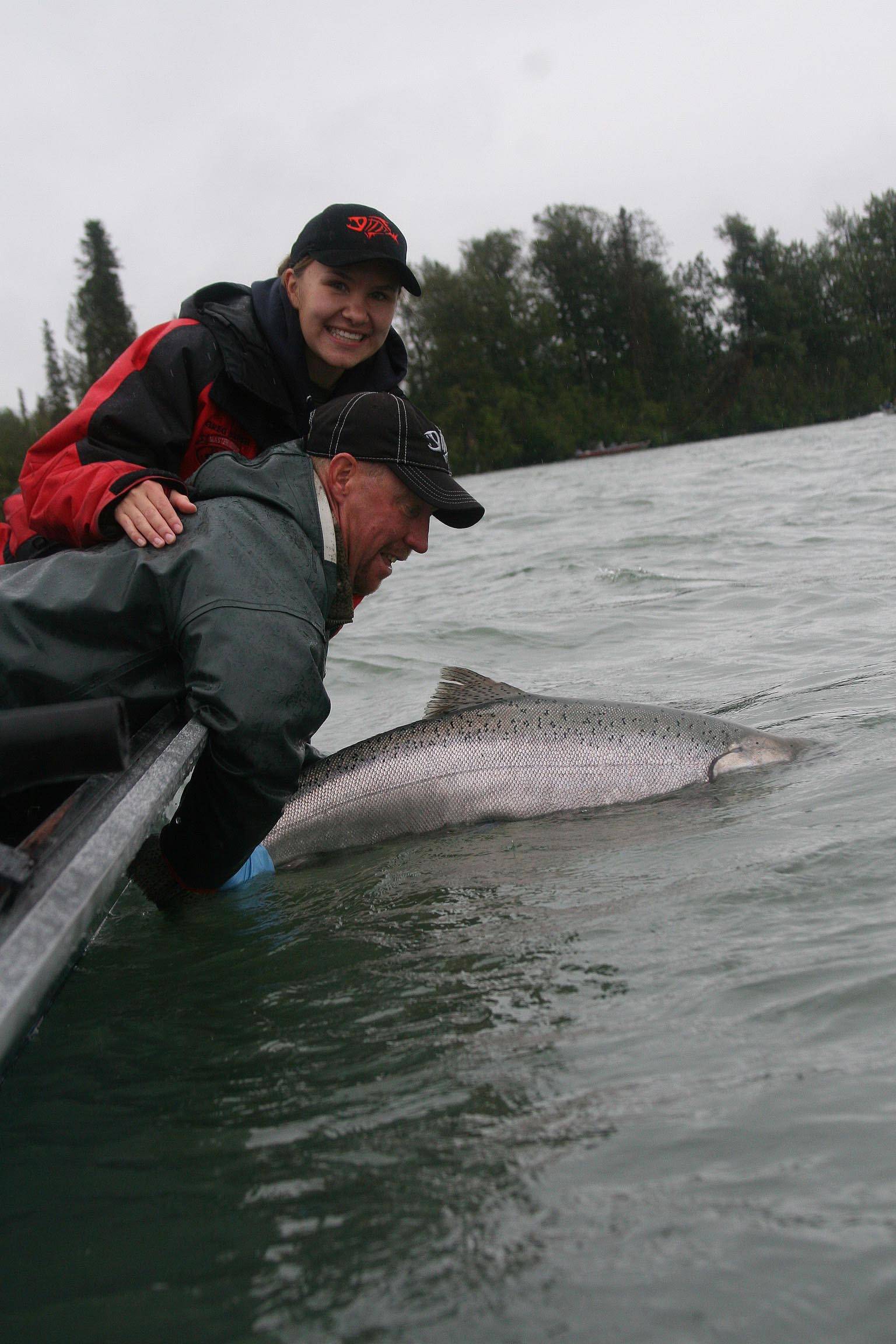By Greg Brush
With Alaskan fishery politics, it’s a rarity when everyone agrees. And with Kenai River king salmon, it’s an absolute miracle to find consensus amongst people.
Yet anyone who’s ever fished the Kenai a few times will basically come to the same conclusion: We have fewer Kenai River chinook than we used to and they are smaller on average than they once were.
And so, with the most respect I can possibly muster for the Alaska Department of Fish and Game, given these sad set of circumstances, I must say that their decision to begin the Kenai River late-run king sport fishery allowing full retention of “any size” chinook is quite possibly the most irresponsible action I’ve ever seen in my 33 years of active fishery politics in Alaska.
Last week, the department had an opportunity to make a clear statement on our beloved river; one that in spirit said, loud and clear, “We care about Kenai kings. We put sustainability as priority one. We know we have a problem. We know there are fewer kings than there used to be. We know that our kings are smaller than they used to be. We know that we have barely been hitting the lower end of our escapement goal for years. And we know that big fish on the beds are important.”
They could have said, in their choices and actions, “We are going to take a middle-ground, precautionary approach to this fishery, as all indications — from the minuscule late-run projection to the disastrous early-run return to the broad, statewide chinook collapse that we are presently experiencing — point to another weak return.”
Instead, the department chose NOT to capitalize on this opportunity to put chinook sustainability at the forefront, opting to persecute the sport fishery as we always have, allowing unique 45-pound, egg-laden hens and broad-shouldered 55 bucks to be removed from the faltering gene pool by in-river sport anglers.
It seems cliche but very apropos right now, as we watch our beloved Kenai kings slip between our fingertips, to say, ”Doing the same thing over and over again but expecting different results is the very definition of insanity.”
Last week, the department ignored the public testimony at the last Board of Fish, which was dominated by repeated pleas for Kenai king conservation. By choosing NOT to use the perfect “compromise” tool that was newly implemented by the BOF, namely the “Under 34 Inch Rule,” which would provide meat for the table for those who wish to harvest, protection for the bigger fish that we need so badly and maximum numbers for ADFG’s counter, our leaders again decided not to bolster the final escapement total and put more big fish on the spawning beds.
Dear ADF&G — please don’t try to blow smoke with some nonsense like, “We are just following the management plan,” because the Under 34” rule is now in the new management plan, sitting idle in the bottom drawer of the toolbox, waiting for implementation.
And don’t insult us by trying to justify this decision to allow full harvest on July 1 with some bologna like, “We are just going by the projections …,” because this year’s LRKK projection is a full 20% less than last years minuscule projection, a year where the paltry LRKK return barely made the absolute lowest end of the escapement goalposts, once again.
All signs point to a weak king return this July. 2021’s early-run Kenai king return was, once again, unbelievably bleak.
Statewide, king returns are in the dumps. The Copper River. The Nush. Virtually all systems across The Greatland.
Everything says we are in trouble, including the department’s own data.
Did you know that the sacred five-ocean, seven-year king that once made the Kenai world famous now makes up less than 1% of the total run — a tiny percentile that is virtually unmeasurable according to many biologists?
And yet, our managers remain “full speed ahead” status quo in their management. Go ahead, kill anything you want as of July 1 on the “mighty” Kenai, even that 70-pound fish-of-a-lifetime, should you or yours be lucky enough to hook it.
I can’t and won’t sugar coat this: The decision to NOT start the fishery with the Under 34 Rule is cavalier, arrogant, and frankly very reckless. And it reeks of politics.
Now more than ever, the management of our fishery is in our hands.
So I respectfully ask you: If and when you choose to sport fish the Kenai River this July, please target species of abundance, like sockeye.
And if you do opt to king salmon fish, please harvest responsibly, considering releasing that big, genetically unique chinook should your golden ticket get picked, taking a small fish for the grill instead.
Because our spawning beds need our help, more than ever.
Clearly, it’s up to us now!
Greg Brush lives in Soldotna is a passionate king salmon conservationist.

